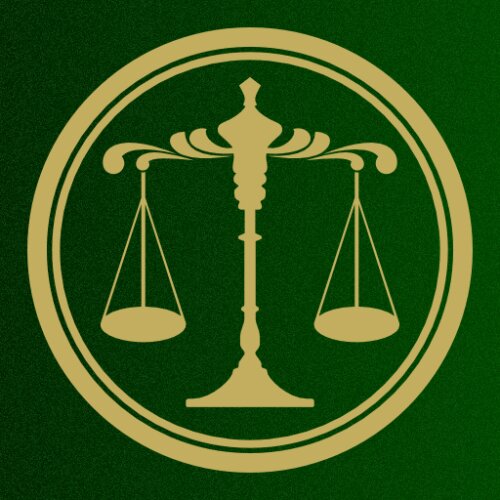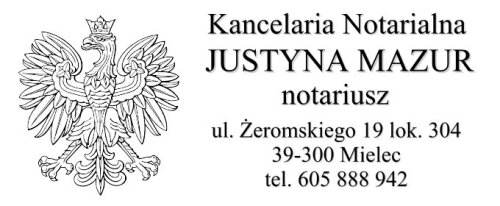Best Transportation Lawyers in Poland
Share your needs with us, get contacted by law firms.
Free. Takes 2 min.
Or refine your search by selecting a city:
List of the best lawyers in Poland
About Transportation Law in Poland
Transportation law in Poland encompasses a broad range of regulations governing the movement of people and goods within the country. This field of law addresses issues related to commercial shipping, public transportation, aviation, railways, and road traffic. As Poland is a member of the European Union, its transportation regulations are also influenced by EU directives and regulations. The goal of transportation law is to ensure safety, fair trade practices, and efficient transport systems within the country.
Why You May Need a Lawyer
There are various situations where individuals or businesses may require legal assistance in transportation matters. Common scenarios include:
- Dealing with traffic violations and penalties.
- Resolving disputes related to logistics or freight within commercial shipping.
- Navigating legal issues in public transportation systems, such as disputes with service providers.
- Addressing aviation-related claims, including those related to passenger rights or cargo claims.
- Understanding compliance with transportation safety standards and regulations.
- Resolving contractual disputes concerning transportation services.
Local Laws Overview
Poland's transportation legal framework includes various laws specific to different modes of transport:
- Road Traffic: Governed by the Road Traffic Act, it covers licensing, vehicle registration, traffic violations, and road safety.
- Rail Transport: Regulated by the Railway Transport Act, which focuses on railway safety, operations, and passengers' rights.
- Aviation Law: The Aviation Law Act incorporates both Polish regulations and EU directives, ensuring compliance in domestic and international air operations.
- Maritime Transport: Guided by the Maritime Code, addressing the shipping industry, maritime traffic control, and associated liabilities.
- Public Transportation: Local ordinances, alongside the Transport Law Act, regulate public transport services within urban and rural areas.
Frequently Asked Questions
What should I do if I receive a traffic violation ticket in Poland?
You may pay the fine if you acknowledge the violation, or contest it if you believe it is unjustified. Consulting a lawyer can provide guidance on your options.
How can I resolve a dispute with a freight company in Poland?
Review the terms of the transport contract and attempt negotiation. If unresolved, legal action may be necessary, and a lawyer specialized in transportation law can assist.
Are there specific regulations for transporting hazardous materials?
Yes, the transportation of hazardous materials is strictly regulated, requiring special permits and compliance with safety standards. Legal advice is recommended to navigate these complex regulations.
What are my rights if my luggage is lost during air travel in Poland?
Your rights are protected under EU regulations, which provide for compensation and assistance. Legal counsel can help in pursuing claims effectively if needed.
Do I need a special license to operate a commercial transport business?
Yes, specific licenses and permits are required based on the type of transportation service offered. Legal advice can ensure compliance with all necessary regulations.
How do I resolve a dispute regarding public transportation services?
Start by contacting the service provider. If unresolved, legal recourse may be advisable, especially if consumer rights are violated.
Are ride-sharing services regulated in Poland?
Yes, ride-sharing services are subject to local regulations and must comply with transport laws regarding safety and service standards.
What happens if I violate a road traffic rule as a foreigner in Poland?
International traffic violations can have immediate penalties. Paying fines is often the simplest resolution, but you may seek legal advice for complex cases.
How can I learn more about transportation safety standards?
Refer to the governmental safety boards and agencies for detailed regulations and standards. Legal professionals can assist in explaining these standards if necessary.
Can I dispute a parking violation ticket?
Yes, you can contest parking violations by presenting evidence to the appropriate authority. Legal assistance may simplify the process.
Additional Resources
Consider reaching out to the following entities for more information or assistance:
- Ministry of Infrastructure: Provides information on national transportation policies and regulations.
- Civil Aviation Authority of Poland: Handles matters related to aviation law and aviation safety.
- General Inspectorate of Road Transport: Oversees road transport standards and safety compliance.
- Local Bar Association: Can recommend qualified attorneys specializing in transportation law.
Next Steps
If you need legal assistance regarding transportation in Poland:
- Identify the specific area of transportation law relevant to your issue.
- Gather all necessary documentation related to your case or inquiry.
- Contact a lawyer specializing in transportation law through the local bar association or legal services directory.
- Schedule a consultation to discuss your situation and explore your legal options.
With the right legal guidance, navigating transportation law in Poland can be a straightforward process.
Lawzana helps you find the best lawyers and law firms in Poland through a curated and pre-screened list of qualified legal professionals. Our platform offers rankings and detailed profiles of attorneys and law firms, allowing you to compare based on practice areas, including Transportation, experience, and client feedback.
Each profile includes a description of the firm's areas of practice, client reviews, team members and partners, year of establishment, spoken languages, office locations, contact information, social media presence, and any published articles or resources. Most firms on our platform speak English and are experienced in both local and international legal matters.
Get a quote from top-rated law firms in Poland — quickly, securely, and without unnecessary hassle.
Disclaimer:
The information provided on this page is for general informational purposes only and does not constitute legal advice. While we strive to ensure the accuracy and relevance of the content, legal information may change over time, and interpretations of the law can vary. You should always consult with a qualified legal professional for advice specific to your situation.
We disclaim all liability for actions taken or not taken based on the content of this page. If you believe any information is incorrect or outdated, please contact us, and we will review and update it where appropriate.
Browse transportation law firms by city in Poland
Refine your search by selecting a city.














